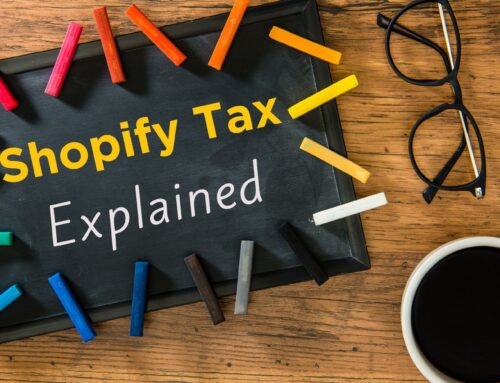
In your Shopify business you certainly recognize the importance of paying your vendors and employees, but what about paying yourself? You might take some money out of your business here and there as needed, but that can get messy when it comes to tax time. It’s important to be intentional and strategic when it comes to paying yourself in your company so you can maximize your tax savings. What exactly do you need to know so you can start paying yourself the right way? Keep reading or click on the video linked below and I’ll explain how Shopify sellers should pay themselves in an S Corporation.
What is an S Corporation?
First things first, let’s go over what an S Corporation, or S Corp is. According to the IRS, for federal tax purposes, S Corporations elect to pass their corporate income, losses, deductions and credits through to their shareholders. In other words, your business income and expenses are reported on your personal tax return.
So, how do you pay yourself as an S Corp owner? Well, you do that in two ways: first, as an employee through payroll, and second, as an owner of your business through distributions.
Pay yourself as an an employee in an S Corp
Let’s start by talk about paying yourself as an employee. You need to do that through payroll. I highly recommend using a payroll service to do this. Through payroll, your business pays the employer taxes. In addition, you must pay yourself what’s called a “reasonable compensation”. Let’s explore what in the world that term means.
When it comes to determining reasonable compensation, the IRS looks at the source of the S Corp’s gross receipts (or its income). It also looks at what the shareholder-employee did for the corporation to generate those receipts. The IRS expects you to pay yourself a reasonable compensation for performing those services for your business. For example, as a Shopify seller you may be sourcing products, negotiating with suppliers, dealing with your 3PLs, managing your operations, performing marketing tasks, hiring and training employees and contractors, and more. When it comes to reasonable compensation, consider what other businesses are paying for similar services. That is one of the guidelines that the IRS uses. But really, there’s no magic formula.
So how do you know what’s reasonable compensation for you? The most important thing you need to do is to talk to your tax preparer. I recommend scheduling an annual planning call with them and be proactive about ensuring that the call takes place on a regular basis.
Paying yourself distributions in an S Corp
Now let’s go over distributions. In addition to paying yourself as an employee of your business, you also pay yourself as an owner of your business. In that case, you can take distributions out of your company. Keep in mind that you don’t pay payroll taxes on distributions. That’s why the IRS wants to make sure that you pay yourself a reasonable compensation. Because otherwise, if you take most of your compensation out as distributions, you’re not paying any payroll taxes on those distributions.
The biggest mistakes Shopify sellers make
After working with many Shopify sellers, here are the main problems that I see when it comes to their payroll and distributions.
#1 – Taking too many distributions and not paying themselves enough as an employee of the business. In other words, they’re not paying themselves a reasonable salary.
#2 – The books are not up to date. That leads to a lack of clarity into what they’re taking out of their business and payroll and distributions.
#3 – Not having regular tax planning conversations with their tax preparers, and as a result, they end up waiting until it’s too late to do anything about it.
Takeaways for Shopify sellers
By having financials that tell the true story of your business, you’ll be able to have important conversations with your tax preparer about your compensation and distributions. You’ll want to have those conversations so that you can make informed decisions instead of getting in trouble with the IRS.
As a Shopify seller, it’s also important that you work with a professional bookkeeper who understands Shopify and is well versed on the tax aspects of an S corporation. They should be looking out for you! At my company, VM Wasek, we specialize in setting up the books for our Shopify clients and then providing monthly bookkeeping services so that they can have a clear picture of what’s going on with the financial side of their business. That includes having full clarity into our S Corp clients and what they’re paying themselves through payroll and distributions.
Closing
I hope you’ve learned some useful insights on how Shopify sellers should pay themselves in an S Corporation to maximize tax savings and stay out of trouble with the IRS. Getting your Shopify financials set up the right way and keeping them up to date is an important first step. Why’s that? Because having clean and up to date financials enables you to have those meaningful conversations with your tax preparer about how to pay yourself.
Are you are ready to work with an experienced and reliable Shopify accounting pro? You can use this link to learn more about my services and see how we might be able to work together. I’d also love to share a few free resources with you including my YouTube channel playlist for Shopify sellers and my Shopify Bookkeeping Blueprint. If you’d also like to connect with other Shopify sellers and professional bookkeepers, come join my Facebook community. I hope to see you there!




